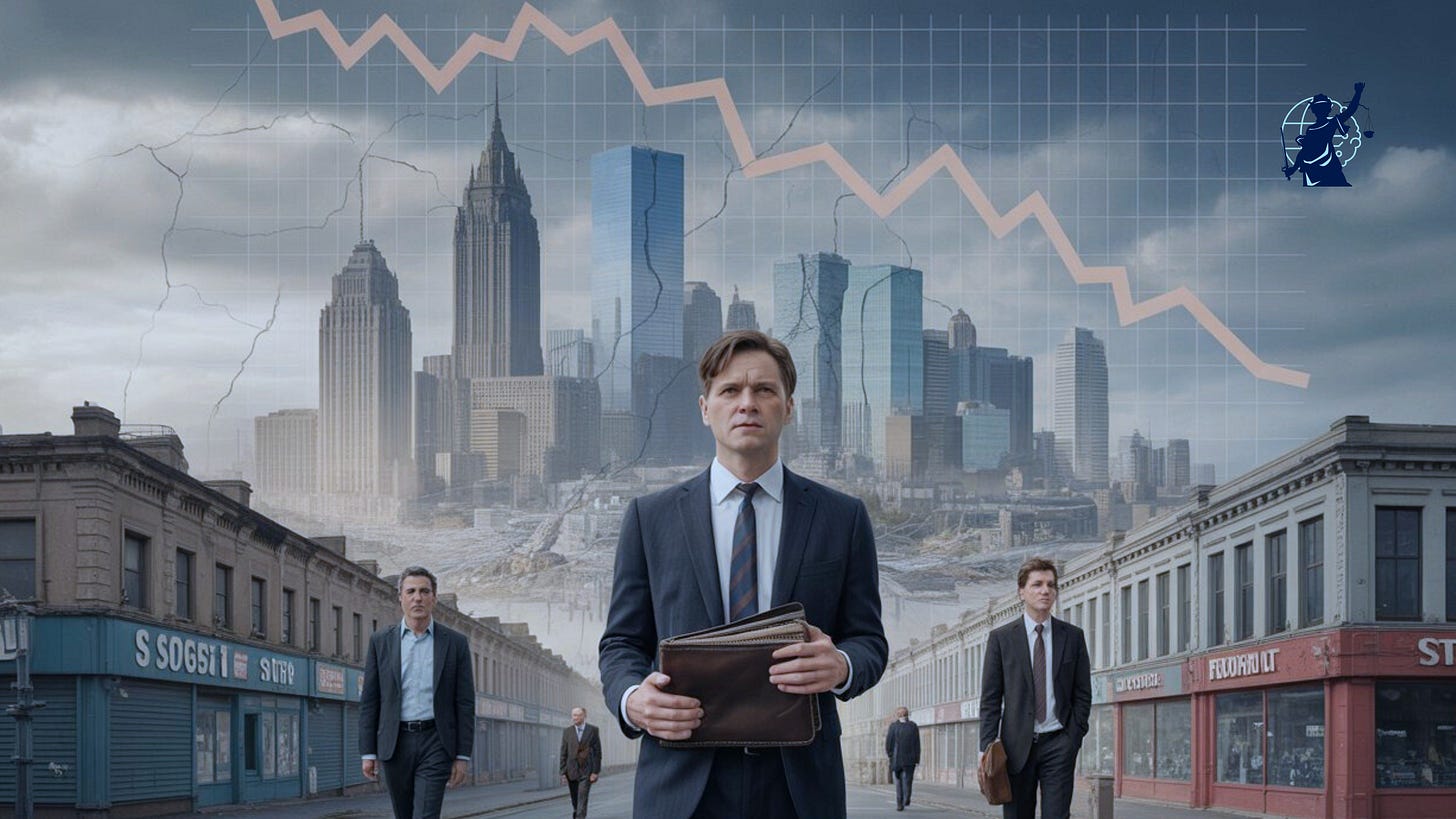The Quiet Storm That Disrupts Everything: Recession
Why economic downturns feel louder in people’s lives than in financial charts.
When people hear the word “recession,” they usually think of graphs, gloomy news headlines, and economic jargon. But a recession is more than a technical term. It’s when a country’s economy shrinks for at least two consecutive quarters, six months of back-to-back economic decline. Sounds clinical, right? But don’t be fooled by the textbook definition. A recession hits people, not just percentages.
During a recession, the economic engine slows to a crawl. Businesses cut back or close down, workers are laid off, and investments stall. Even governments feel the pinch, they collect less in taxes just when they need more to support struggling citizens. It’s not just an economic event; it’s a chain reaction that touches nearly every aspect of daily life. Your job hunt gets harder. Prices may rise even as income falls. Financial security feels shaky.
One of the most vivid recent examples is the global COVID-19 recession in 2020. Practically overnight, the world hit pause. Factories closed, flights stopped, and entire industries froze. Global GDP fell by 3.4%, marking the worst economic downturn since World War II. Countries rushed to issue stimulus checks, rescue packages, and emergency aid, but recovery was uneven. Some bounced back faster than others, and many were left behind entirely.
Then there are cases like Argentina, where recession is less of a cycle and more of a trap. With inflation skyrocketing above 200%, a collapsing currency, and rising poverty, Argentina seems stuck in repeat mode. Each policy change feels like a temporary bandage on a much deeper wound. It raises a critical question: Can a country truly recover when the economic roots themselves are broken?
So, why should you care about recessions? Because they shape everything, from your job prospects to your grocery bill to your country's political stability. Understanding how and why recessions happen isn’t just for economists or policy makers. It’s for anyone trying to make sense of the world around them.
At Thinkonomics, we believe in reframing the question. Instead of asking “Is the economy okay?”, maybe it’s time we ask, “Are people okay?” Because in the end, the health of an economy should be measured not just by numbers, but by how well it serves the people living in it.





